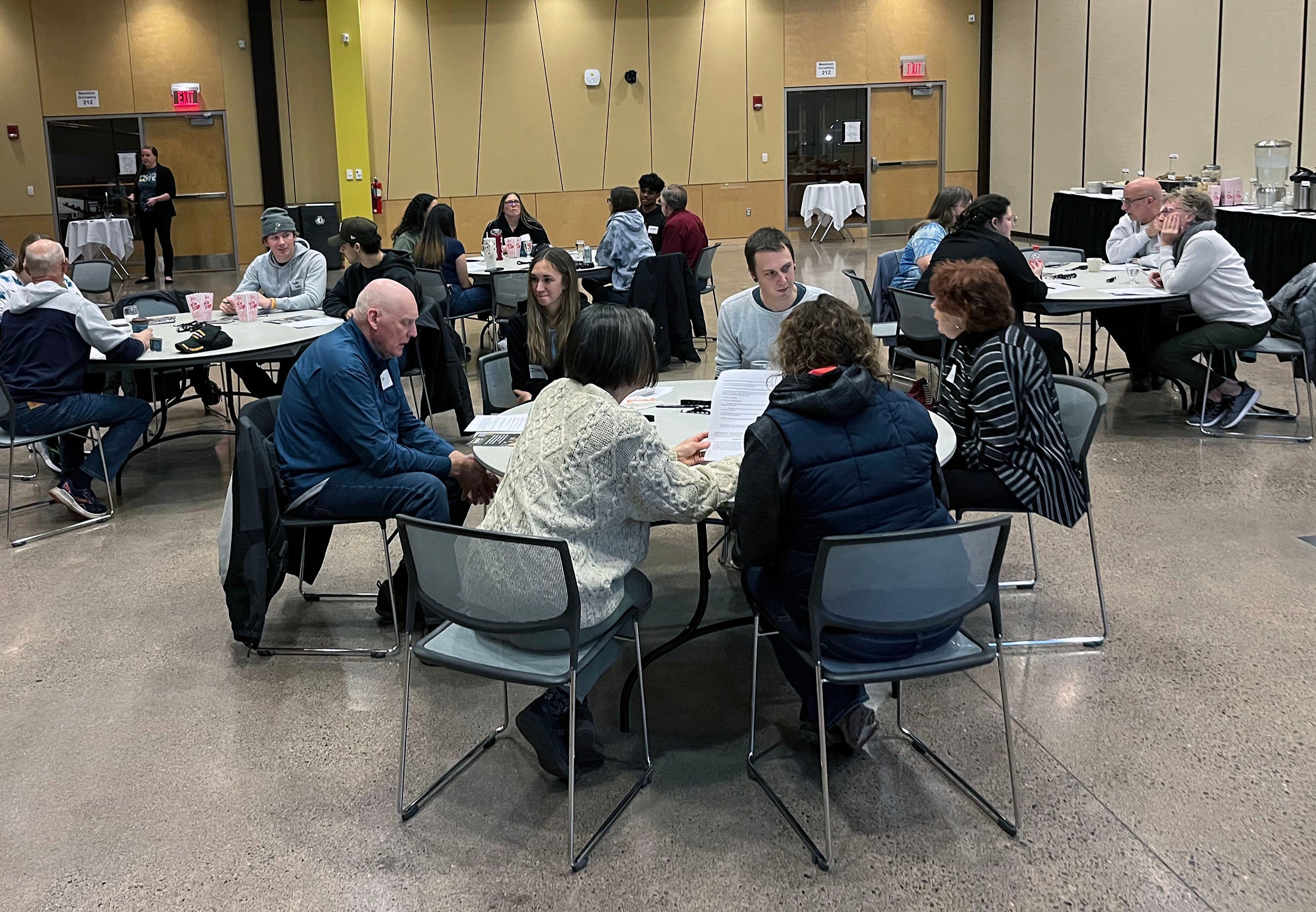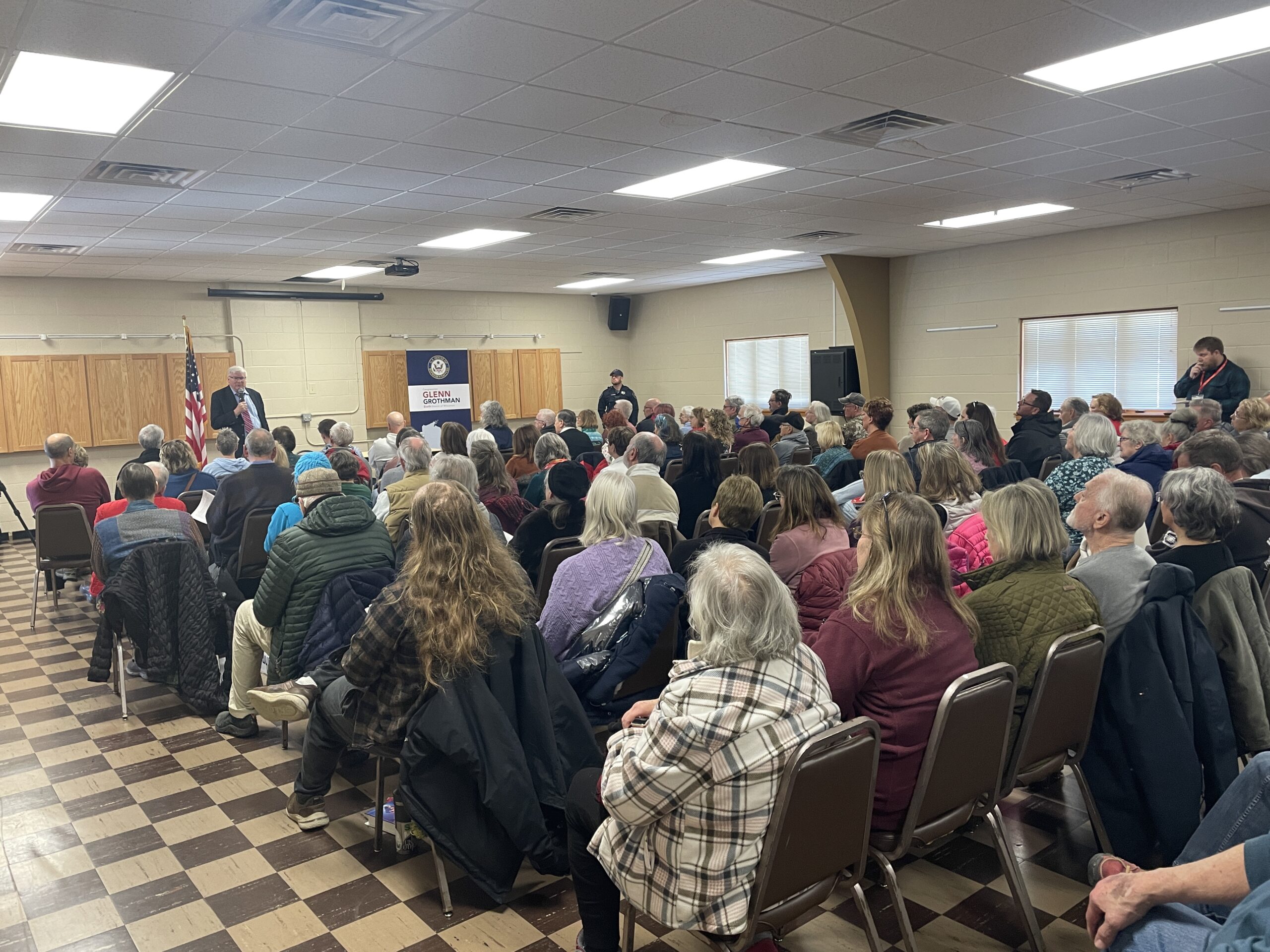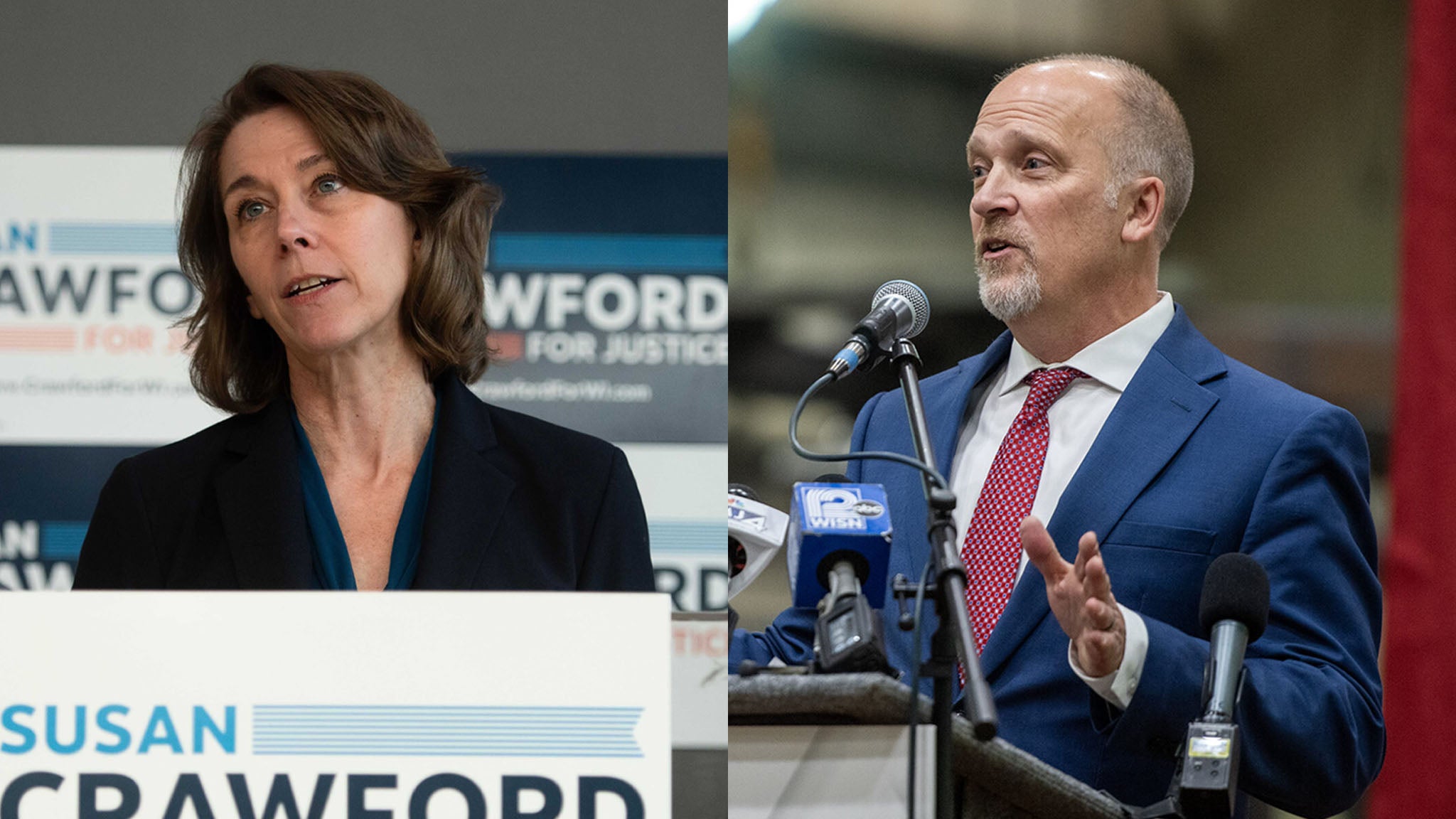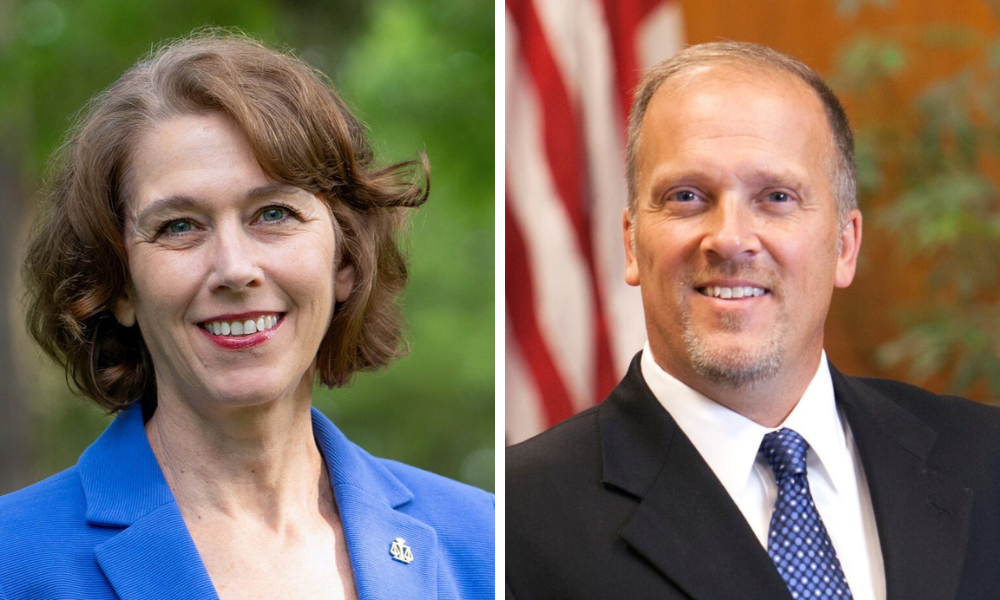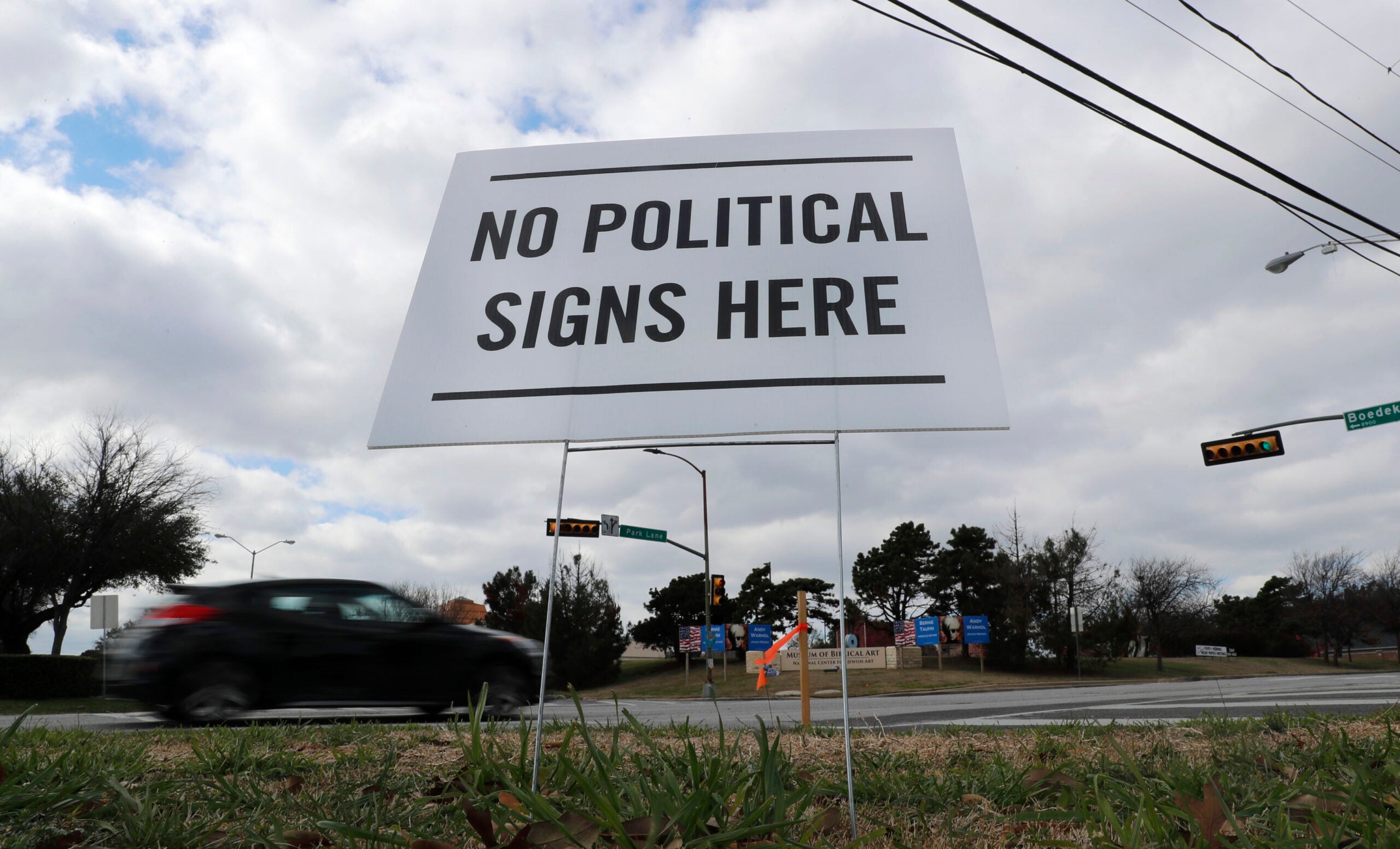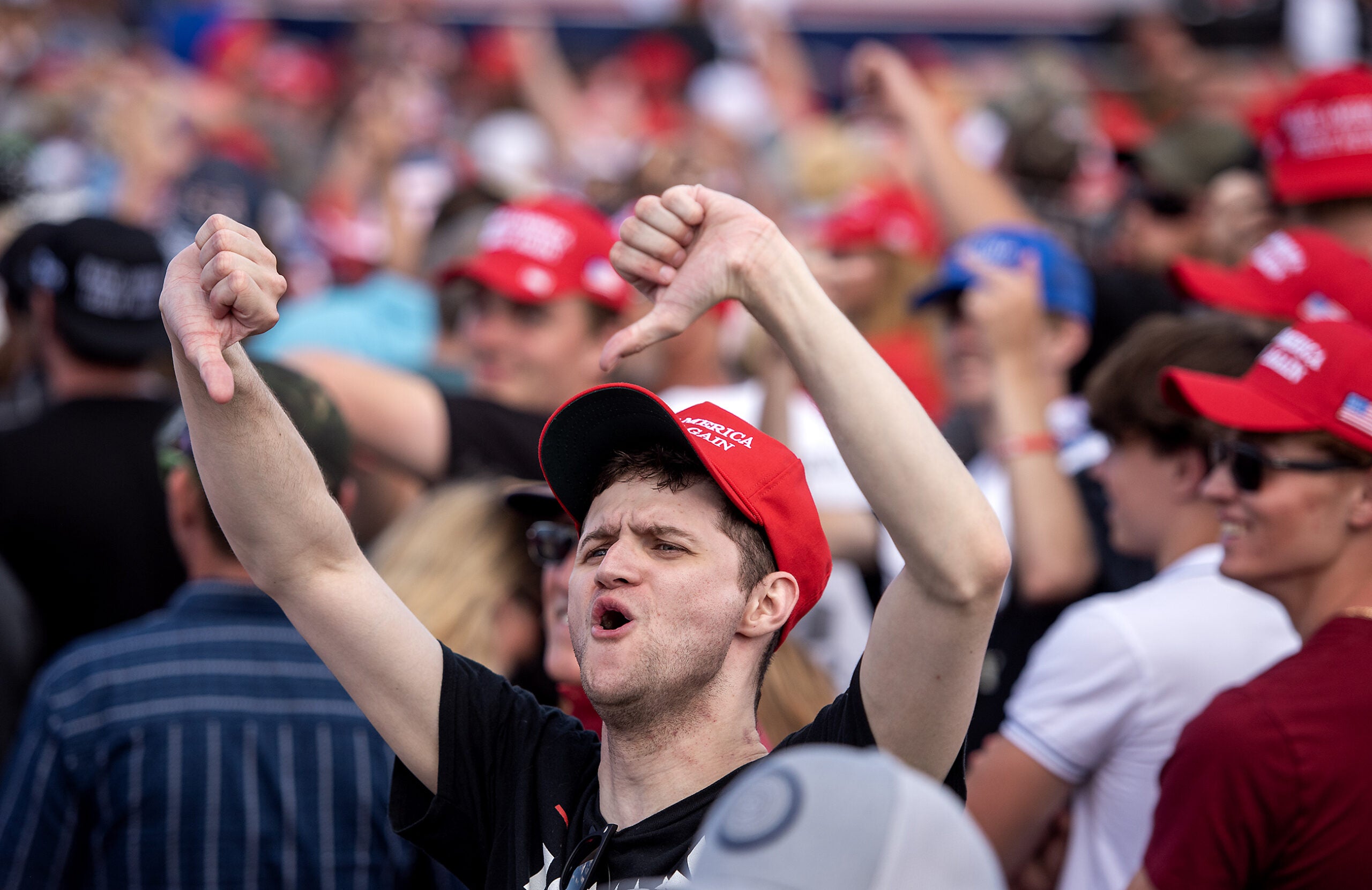As many people are gathering with loved ones over Thanksgiving, the holiday may be fraught with political tension between relatives divided over the outcome of the presidential election. In Superior, a local nonprofit group recently held a workshop on skills for disagreeing more productively to help bridge the political divide.
When Bob DuBois heard about the workshop, he said he jumped at the chance to attend.
“Our country is so divided, and I want to be a peacemaker as much as is possible for me,” DuBois said.
Stay informed on the latest news
Sign up for WPR’s email newsletter.
The Superior resident was among about 30 people who attended the event hosted by the Northern Minnesota and Wisconsin Braver Angels Alliance. Braver Angels, a nonprofit organization, was formed by a Minnesota therapist after the 2016 presidential election to promote civility and reduce political discord.
DuBois, who considers himself right of center, said he voted for Democratic Vice President Kamala Harris in protest. That wasn’t the case in 2016 when he voted for now Republican President-elect Donald Trump. Since then, he said a couple family members no longer speak to him.
“Sometimes you get so divided politically that you have trouble finding people you can talk to, so you wind up living in your own little echo chamber,” DuBois said. “It’s just nice to bust out of that once in a while and be able to talk to somebody like another human being.”
As the workshop got underway, moderator Tim Gustafson urged participants to abandon expectations of persuading others with opposing viewpoints to change their core beliefs. If relatives are politically at odds over the holidays, he said many still love one another and desire a good relationship.
“If you can engage in an amiable conversation with people around the table at dinner time, you can use your differences to build the relationships that you have with each other rather than destroying them,” Gustafson said.
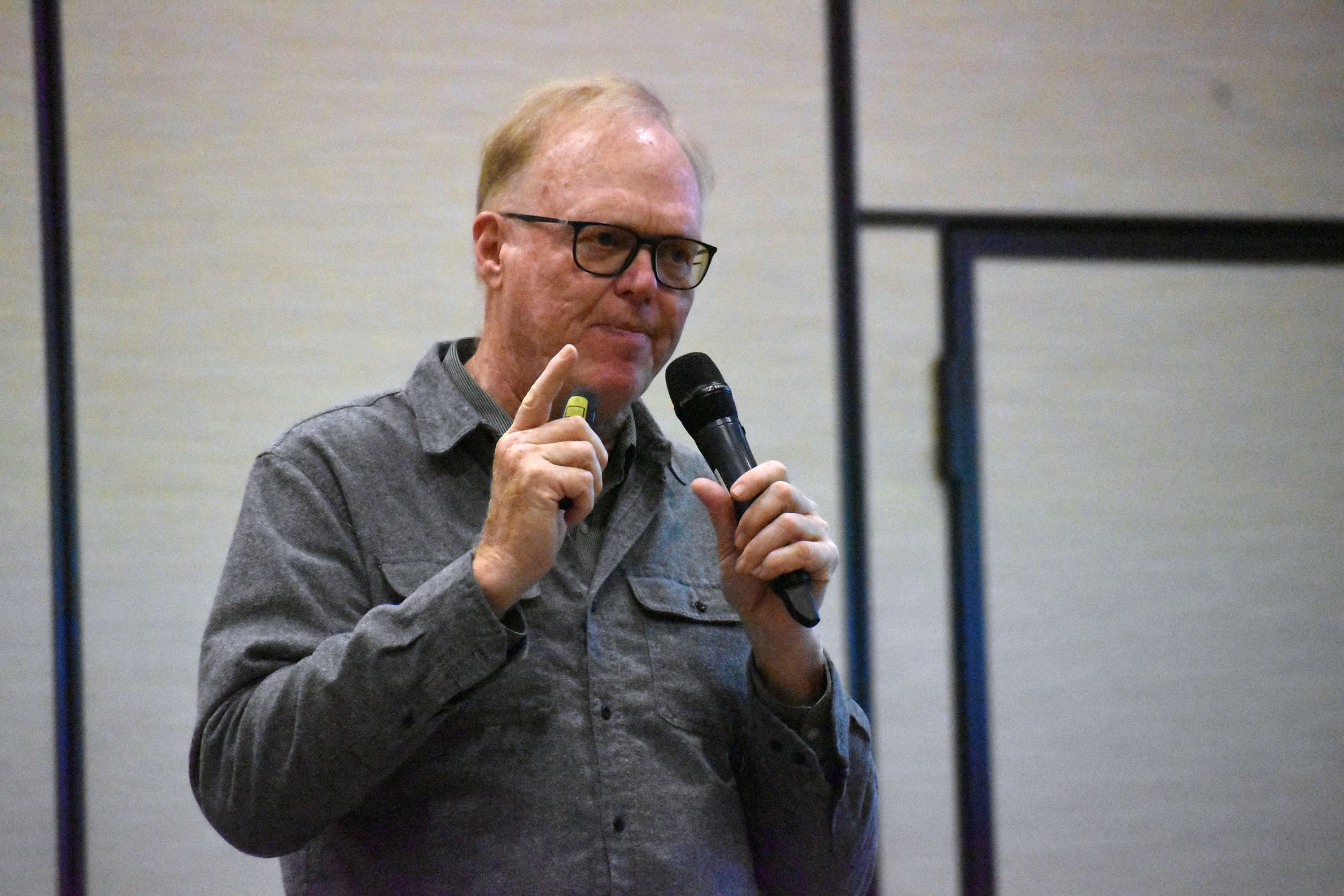
Listen and acknowledge what others have to say
Toward that end, he encouraged the workshop’s participants to listen and acknowledge the views of others without injecting their own opinions into the conversation. He said acknowledging their views helps validate what people share.
“That makes you think about what the person said, and (it) makes that person feel valuable that you are able to listen to them,” Gustafson said.
He also advised them to thank others for sharing their views and ask permission before sharing their own beliefs to determine whether others are willing to listen.
Some participants said they felt most people’s views lie somewhere in the middle of conservative and liberal extremes. According to the Pew Research Center, around two-thirds of Americans are evenly split between those who say they’re Republican and those who say they’re Democrats. Around one-third say they’re independent or something else.
For Melanie Soderlund, she said politics is not a topic that her family openly discusses.
“I think more to be respectful and just not cause conflict on how other people view things in the family,” Soderlund said.
After the election, the Superior resident said she’s hoping to utilize the workshop’s skills to speak more openly with family members about it over the holidays.
Democrat Steve Gregorich of Duluth agreed, saying he felt better able to listen and pump the brakes on sharing his opinions. Gregorich said he came away feeling more positive about speaking with family and friends on opposite sides of the political aisle.
“I do have a sister that is Republican, and I have a very good friend who is Republican … and (I’m) learning his opinions and understanding why he feels the way he does,” Gregorich said.
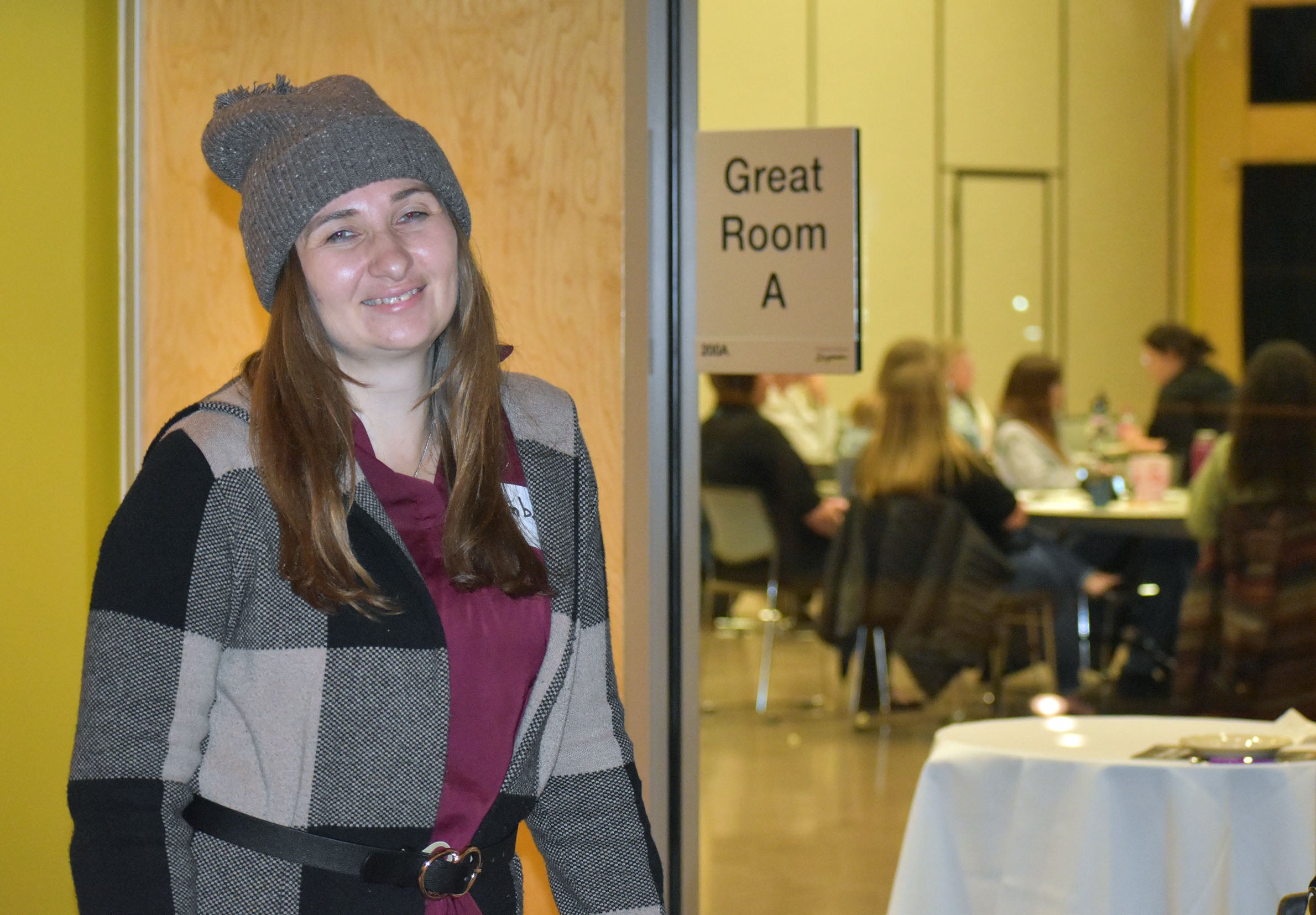
Seeking respect and understanding
Duluth resident Amber Lewis is a mother of five who is training to become a moderator for Braver Angels. She considers herself a moderate who is open to new ideas, but her family is more conservative.
While Lewis still aligns with Republicans and conservative values, she didn’t vote for Trump and leans toward protecting access to abortions. Lewis said she expects the election will be a topic of conversation when they get together for Thanksgiving.
“In the end, it’s my family, and I’m going to do my best to respect their opinions and to be able to listen and understand where they’re coming from even if ultimately there’s times where you just don’t understand,” Lewis said.
For her, politics is an important part of her identity that she wants to share with her family in an open exchange of ideas. In the broader community, Lewis said people often dehumanize one another for their political views. She said it hurts to see that happening when those she knows and loves are labeled as bad people for their beliefs.
“They’re not,’” Lewis said. “They just have some very different beliefs, and they have some good reasons for those beliefs.”
As participants practiced listening and acknowledging one another’s views, Gustafson said he hoped they would leave the workshop feeling that others they disagree with aren’t bad people.
“When you learn that they’re not demons, they’re people, they share the same values as we do, you can have those conversations,” he said.
Wisconsin Public Radio, © Copyright 2025, Board of Regents of the University of Wisconsin System and Wisconsin Educational Communications Board.
